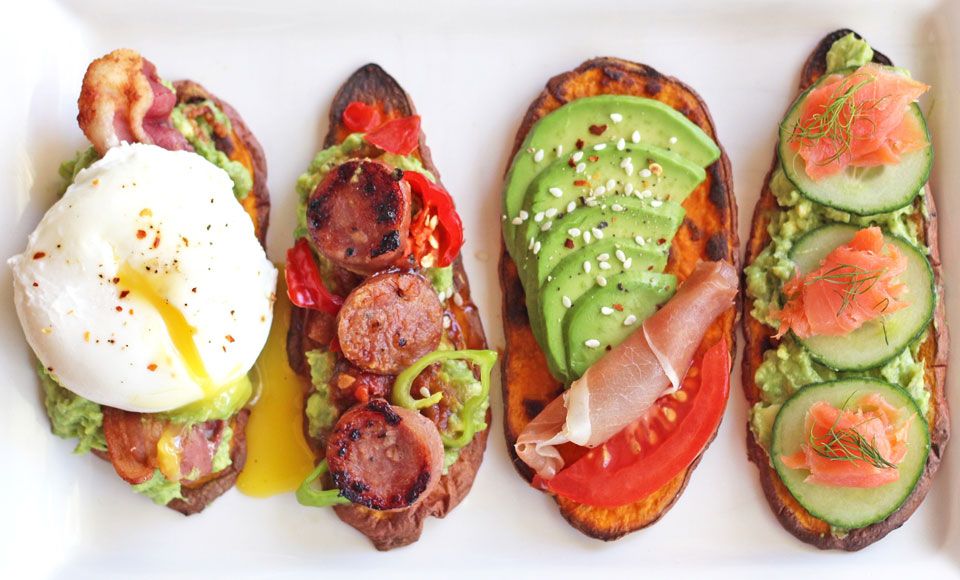“I’m not a celiac but…”
Some call the Keto diet a celebrity-fad palatable only to cross-fit warriors and Bondi hipsters. Others reckon it’s an energy-boosting weight-loss program that cures diabetes, epilepsy and arthritis. We talked to The Paleo Chef (and MKR judge) Pete Evans, Transform Health dietician Jordan Ponder, and nutritionist Zoe Bingley to get the inside scoop.
What did we find? Let’s just say that before you follow in Lebron’s Ketogenic footsteps you’re going to want to read this guide.
What Is The ‘Keto’ Diet?
Ketosis is an evolutionary mechanism the body initiates to survive when food intake is low. The Keto diet is basically a way to trigger it (without starving). This involves replacing foods high in carbs (pasta, bread etc.) with one’s higher in protein or fat (meat, leafy greens etc.).
The reason this triggers Ketosis is because your body typically burns carbohydrates before its reserves of fat, so if you deprive yourself of carb-rich food, even if you are consuming a healthy number of calories, you trick your body into thinking it’s starving.
Jordan Ponder, a dietician at Transform Health, says that this causes the body to break-down fat into substances called ketones (a process which takes place in the liver), using them for energy instead of glucose—the broken down version of carbohydrates the body normally uses for fuel.
What Happens When You Enter Ketosis?
Many people experience a “low-carb flu.” This typically occurs during the first few weeks, making you feel mentally and physically weak. You may be hungry even after eating, lethargic, dizzy, and low on energy. In fact, if you’ve ever skipped a couple of meals, you’ve probably entered Ketosis.
According to Pete Evans, when this happens, “Your body is clearing the junk out of it and readjusting to how it is best designed to run.” In order to overcome the negative effects, he recommends you change your diet gradually.
“I always advise to work with a functional medical doctor who is up to date with nutritional science to get testing done prior, then during your transition and also 6-12 months after the complete change as blood tests don’t lie (just be careful in the first 3 months as the markers can go off course as the body is adjusting itself too) which is why I recommend working with a professional and looking at it at 6 months, then 12 and so on.”
What Are The Benefits?
On a Ketogenic diet your insulin (the fat storing hormone) levels drop significantly, which turns your body into a fat-burning beast. Studies have shown the Ketogenic diet provides better weight-loss results than low-fat and high-carb diets; even in the long term.
Done correctly, a Ketogenic diet also naturally lowers blood-sugar levels due to the type of foods you eat, which makes it great for people with type-two diabetes. This can improve your focus and concentration (once you’ve got through the first few weeks and your body is used to it).
Finally, the Ketogenic diet can be used to treat various medical conditions, having been used since the early 1900’s to treat epilepsy, it can also help reduce cholesterol and blood pressure, insulin resistance and ACNE.

What Are The Risks?
As Jordan Ponder points out: it’s very easy to mistake, “Good fats from farmers that know their meats, and poor-quality fats.” According to him this is crucial because, “Most of the (Keto) theory is grounded in the quality of the food, and unfortunately with contemporary lifestyles being so busy; we just don’t have time to prepare the right foods the right way.”
“Fat is where we store a lot of vitamins, minerals and nutrients, so the quality of the fat that we are eating is really really important.”
Unless you’re a professional athlete like Lebron—surrounded by nutritionists, physicians and trainers who can tailor the diet to meet your specific needs—it’s not easy to get the Keto diet right. Also, Jordan says you shouldn’t trust all of the Keto acolytes, who (in his view) advocate, “Bro science designed off the back of caveman-style body reaction to eating fat and protein, when the lifestyle they had was similar to that of an animal—totally different to what we have now—working for 12-16 hours, sleeping in one long stint and socialising and drinking too much.”
Zoe Bingley backed him up, warning that switching to the Keto diet could cause bad breath, constipation and bloating (due to reduced carbohydrate and fibre intake) and in women
Amenorrhea—the loss of menstrual cycle, “especially if kilojoules/energy intake is drastically cut also.”
What To Eat On A Keto Diet?
Depending on how quickly you want to reach a full on ‘Ketogenic’ state, you will have to adjust the early stages of your diet plan (yes, you need a plan—or you’ll be smashing oreos and pizza two-cravings in).
Essentially: (most) vegetables, nuts, meat and (some) dairy. Don’t eat any refined carbohydrates like bread, pasta and cereals, or starchy foods like potatoes, beans, legumes and fruit. The small exceptions, according to some advocates are avocado, star-fruit, and berries which can be consumed in moderation.
More specifically, here’s what you should eat: meats, leafy greens, above ground (non starchy) vegetables (think: broccoli, cauliflower, etc.), high fat dairy, nuts and seeds, avocado and berries (they get a hall pass because they are low GI) and other fats like coconut oil, standard olive oil salad dressings, etc.
Should You Try It?
From Jordan Ponder it’s a no. Most people, he reckons, would be better advised to make more incremental changes to their diet, aiming to eat the recommended 5 servings of fruit and veg a day and cutting back on junk-food, rather than focussing specifically on reducing their carb intake.
Pete Evans, on the other hand, is a strong advocate. He points out that it’s not necessary to cut out all carbohydrates, and that the main goal of the Keto diet is to remove the most common inflammatory foods to humans, which he says are, “Grains, dairy and legumes”, citing the work of Dr David Perlmutter, Professor Eugene Fine and Dr Jason Fung.
However, as with most controversial topics, there are studies to back up both sides of the argument. Whole-grains and legumes have been shown to posses numerous health benefits, and Zoe Bingley argues that any restricted diet detracts from having a healthy relationship with food, may be a detriment to health and places unnecessary limitations on one’s life.
“Carbohydrates are a necessary part of a balanced diet and whilst they aren’t limited entirely when on a Ketogenic diet, the level required to achieve ketosis and to stay in ketosis is well below what the average individual requires for optimal health. This diet can also make socialising and eating out difficult (see video below).”
RELATED: The Truth About Using Peptides & How They Impact Health
